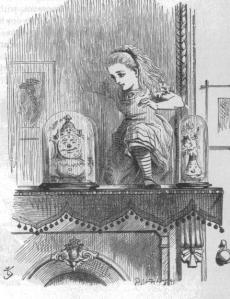What is a homeopathic remedy? A sugar pill? ‘Just water’? Homeopathy was named by one Dr. Samuel Hahnemann. First-rate scientist, rubbish PR person. Homeo-pathy? Awkward man – awkward word: difficult to spell, easy to lampoon. Even easier to misrepresent.
Vodpod videos no longer available.My favourite skeptic skit… completely misleading, but – anything for a laugh, eh?
Laughs aside, homeopathy – a remarkably cheap, effective, low-tech health care option, affordable even to the poorest nations – deserves proper research funding. Key elements of treatment:
- Symptom similarity – determined through tests on the healthy (pathogenic trial, proving)
- Individualisation – symptom similarity is as individual as people
- Serial dilution/agitation – developed to minimise drugs toxicity/side effects
‘Homeopathy’ is not a protected term; mis-use of the word commonly confuses public perception. Here is someone else who seems confused about homeopathy:
Vodpod videos no longer available.Very likely this man knows quite well that his seaside dropper stunt is misleading nonsense. Ah – isn’t that… yes, skeptics call homeopathy ‘misleading nonsense’ while spreading misleading nonsense about this widely used and accepted healing modality.
Dilution to the infinitesimal is not what makes a medicine ‘homeopathic’. Ultra-high diluting was Hahnemann’s answer to drug-induced pathogenic (‘side’) effects. He employed serial dilution, a method still commonly used in pharmaceutical labs. He just took it an inexplicable, observation-based step further.
Confirmed similarity to symptoms of disease makes a substance homeo-pathic – similar to the individual’s suffering. Fact is, most ordinary medication too works because a given substance can cause in the healthy just those symptoms it is designed to treat – medicinal substances have naturally both anti- and homeo-pathic effects. This is most easily seen in the so-called ‘paradoxical effect’ – e.g. analgesics inducing pain. The use of Zolpidem*, an insomnia treatment, to rouse coma/PVS patients is one example of the homeopathic similarity principle in ‘off label’ drug use.
The simillimum aspect of ordinary medicines is easiest to spot in herbal remedies, for example chamomile (e.g. induces nausea if over-used = soothes stomach in normal use) or arnica (over-use a.o. causes microhaemorrhages = effective treatment for bruising). Such similarity is a key factor in much primary drug action – which means a large chunk of medicine is in fact crudely homeopathic.
Conversely, if someone dishes out potentized remedies bought from a homeopathic pharmacy, this does not equate to homeopathicity: no similarity, no treatment, no effect. That’s one reason why the ‘homeopathic suicides’ stunts are so risible: “Look, look I’m not dead – ha ha ha!” “Yes, we know, dear… isn’t that nice? We’d hate to see you damaged by your own stupidity.”

this man does not understand homeopathy - skeptic campaigner 'suicide' stunt
The beauty of potentized ultra-high dilutions is just that: they can induce amazing health changes if properly prescribed – yet pass through harmlessly if ‘dissimilar’, that is, not needed or not properly individualised to a patient.
Hahnemann prescribed standard doses of his newly discovered ‘similars’, successfully, for several years. In his quest for minimising side effects, why would an ambitious young doctor still building a reputation scupper his chances? Why refine this peculiar dynamization process unless it worked well? Were both he and his patients the first gullible victims of homeoathy – just like the 500 million worldwide who use it today? All of us? Just fools? Really?
Some medics were disparaging homeopathy on the grounds of implausibility decades before the science community accepted Avogadro’s Constant. What today’s skeptics believe about homeopathy is worn-out old tricorn jazzed up with the high-tech feathers of molecular biochemistry.
In Europe, much homeopathy (and a related application, ‘homotoxicology’) is practiced using low 1:10 serial dilutions. Definite material doses are still present in such preparations. In dismissing these as much as high potencies, professional CAM ‘debunker’ Edzard Ernst and friends gloss over the pharmacologically quantifiable content. I’d agree that the degree of homeopathic dilution really is just a question of … degree. So, naturally, 1:10 dynamisations, like infinitesimal ultra-high preparations, do work. Being materially small doses, they act less subtly, treatment indications are more limited: a half-way-house between the holistic, individualised applications of the ultra-high level and the single-track biochemical usage of modern medicine.
Ultra-high dilutions are not easy to understand. There is no known mechanism that shows definitely why they work; there is much new-agey mis-information. Some people are attracted to homeopathy because it all seems so miraculous. Others get angry at the inexplicable.
Science has a long history of revolutionary discoveries that overthrow old world orders, from Copernicus to Einstein and beyond. The unknown is unknowable – until it is discovered. I can see the action – and results – of the infinitesimal in my practice every day. Whether or not a biochemical, quantum or other explanation for homeopathic medicine will be discovered eventually… it really doesn’t matter to the people who get better.
*Incidentally, Zolpidem is an example of the evidence-mindedness of medical care: although studies have to date failed to confirm the early promise of this application for the drug, many if not most PVS patients are given Zolpidem on an experimental basis. And why not? It’s just that if one went strictly by the demands of EBM, doctors would not agree such off-label use until confirmed in large-scale trials.




